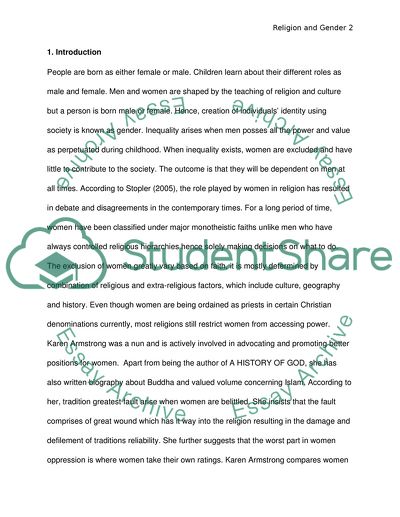Cite this document
(How Has Religion, in The Form of Discourses, Institutions, and Actors, Assignment, n.d.)
How Has Religion, in The Form of Discourses, Institutions, and Actors, Assignment. Retrieved from https://studentshare.org/religion-and-theology/1738397-how-has-religion-in-the-form-of-discourses-institutions-and-actors-been-used-in-support-of-andor-against-the-achievement-of-gender-equity
How Has Religion, in The Form of Discourses, Institutions, and Actors, Assignment. Retrieved from https://studentshare.org/religion-and-theology/1738397-how-has-religion-in-the-form-of-discourses-institutions-and-actors-been-used-in-support-of-andor-against-the-achievement-of-gender-equity
(How Has Religion, in The Form of Discourses, Institutions, and Actors, Assignment)
How Has Religion, in The Form of Discourses, Institutions, and Actors, Assignment. https://studentshare.org/religion-and-theology/1738397-how-has-religion-in-the-form-of-discourses-institutions-and-actors-been-used-in-support-of-andor-against-the-achievement-of-gender-equity.
How Has Religion, in The Form of Discourses, Institutions, and Actors, Assignment. https://studentshare.org/religion-and-theology/1738397-how-has-religion-in-the-form-of-discourses-institutions-and-actors-been-used-in-support-of-andor-against-the-achievement-of-gender-equity.
“How Has Religion, in The Form of Discourses, Institutions, and Actors, Assignment”, n.d. https://studentshare.org/religion-and-theology/1738397-how-has-religion-in-the-form-of-discourses-institutions-and-actors-been-used-in-support-of-andor-against-the-achievement-of-gender-equity.


